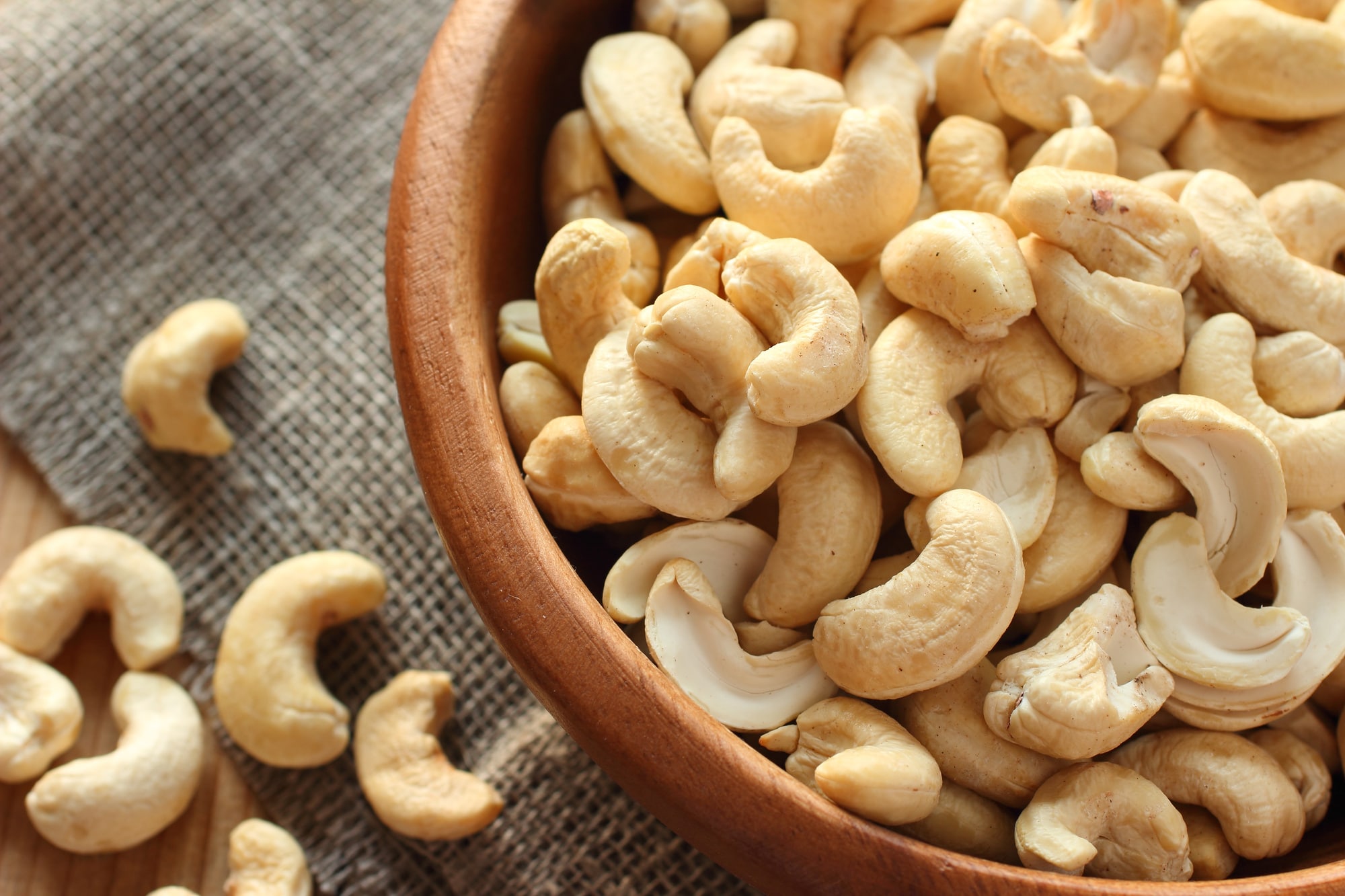What Is A Cashew Allergy?
A cashew allergy is an immune system reaction to proteins found in cashews. 13S globulin (legumin group) and 2S albumins, which represent major allergen classes in several plant seeds, are the cashew proteins responsible for severe allergic reactions.
Cashews are classified as tree nuts although they are technically seeds. An allergy to tree nuts is one of the most common food allergies among children and adults. It is often linked to anaphylaxis, along with peanut and shellfish allergies. Even a tiny tree nut trace is enough to cause a severe allergic reaction.
People with cashew allergies usually experience cross-reactive reactions after eating other tree nuts such as almonds, walnuts, hazelnuts, and pecans. There are also cases of cross-reactivity with soybeans. This cross-reactivity may be mild or severe. Within tree-nut-allergic individuals in the United States, 20 percent of people are allergic to cashews. It is the second most common cause of tree nut allergy. Since cashew allergy is a severe food allergy, it’s essential to know how to identify symptoms and treat severe reactions.
Cashew Allergy Symptoms
- Abdominal pain, cramps, nausea, and vomiting
- Rash or hives
- Difficulty swallowing
- Itching of the mouth, throat, eyes, skin, or any other area
- Swelling of the face and throat
- Shortness of breath
- Anaphylaxis
Cashew allergies are often associated with more severe reactions than other types of food allergies. Studies show that about 74% of people allergic to cashews experience anaphylaxis, even if the exposure was minimal. Cashew allergies typically develop by the age of 2, and the number of tree nuts to which a person is allergic may increase with age. If you show symptoms of a cashew allergy, you should seek medical attention immediately.
Cashew Allergy Diagnosis
There are many ways to diagnose cashew allergies such as skin prick testing, blood testing, and food challenges. Skin prick testing is the most common form of allergy testing. For a skin prick test, a small amount of allergen extract is placed on the skin, and the skin is pricked with a needle. If a person is allergic to cashews, they will develop a raised, red, itchy bump at the site of the prick within about 20 minutes.
A blood test simply checks for the presence of IgE antibodies to cashew proteins. This test is accurate but takes longer for patients to get results. However, it is considered a safer alternative to other forms of allergy testing.
Food challenges are the riskiest forms of allergy testing and should only be administered in a clinical setting. During a food challenge, the patient is given a small amount of cashews to consume to see if they exhibit an allergic reaction. Since cashews usually produce severe allergic reactions, many allergists avoid food challenges unless it is absolutely necessary. You should never attempt a food challenge on your own.
Cashew Allergy Treatment
While there are immunotherapy treatments available for some food allergies, these therapies have not been approved by the FDA. So the best treatment for cashew allergy is avoidance. Food oral immunotherapy involves eating a small dose of the allergen and gradually increasing the amount over time. This method attempts to desensitize patients to the allergy. The only approved food allergy treatment is for peanuts.
Until approved treatment for cashew allergy is available, be sure to carry an EpiPen or Auvi-Q to treat severe allergic reactions that may arise. Epinephrine is the only treatment for anaphylaxis. You may also need antihistamines to treat milder symptoms such as itching, rashes, and hives. Ask an allergist at NY Allergy & Sinus Centers which medications are best for you.
Cashew Allergy Frequently Asked Questions
Are Cashew Considered Tree Nuts?
Cashews are considered tree nuts although they are technically seeds.
Why Are People Allergic to Cashews?
Cashew allergies occur when the immune system wrongly believes almond proteins can harm your body, so IgE activates cells to fight the proteins, causing allergy symptoms. 13S globulin (legumin group) and 2S albumins are the proteins in cashews responsible for severe allergic reactions.
How Common Is A Cashew Allergy?
Cashew allergies are very common among people with tree nut allergies. Studies show that about 20% of people with a tree nut allergy are allergic to cashews.
How is Cashew Allergy Diagnosed?
Allergy testing can help diagnose cashew allergy. Methods include skin prick, blood, and food challenges. Consult with an allergy specialist for a cashew allergy diagnosis.
If I Am Allergic to Cashews, Can I Still Eat Other Tree Nuts?
An allergy to one tree nut does not necessarily mean an individual is allergic to other tree nuts, but certain tree nuts are closely related, including cashew with pistachio and pecan with walnut.
How is Cashew Allergy Treated?
There currently isn’t an approved treatment for cashew allergy. If you are allergic to cashews, you should avoid them. However, symptoms can be treated with antihistamines and epinephrine.
Can You Develop A Cashew Allergy Later in Life?
While most cashew allergies are developed in childhood, it is possible to develop a food allergy later in life. If you suspect you have a cashew allergy, visit an allergist at NY Allergy & Sinus Centers.
When Should I Call 911 For A Cashew Allergic Reaction?
If you consume cashews and begin feeling faint, unable to breathe, or have severe hives, you should call 911 or go to the emergency room immediately. You could be having a severe allergic reaction and require immediate medical attention.

